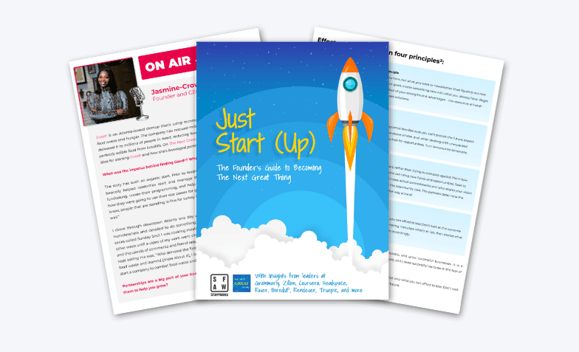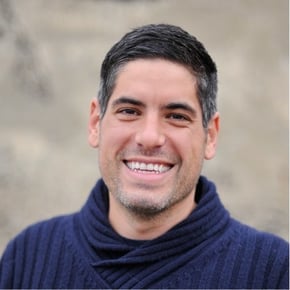For the final episode of 2023 of The Next Great Thing podcast, I interviewed Keith Peiris, Co-Founder and CEO of Tome, a popular AI-powered storytelling and presentation platform.
Born during the early days of the pandemic, Tome flourished under the guidance of Reid Hoffman (Keith incubated Tome as an entrepreneur-in-residence at Greylock). It hit hypergrowth post-ChatGPT, scaling to ten million users in just nine months. Today, anyone can use Tome to turn their ideas into stories and presentations within seconds — from fundraising pitches and sales proposals to landing pages and classroom presentations.
Listen to the episode on our website, Apple Podcasts, Spotify, or anywhere you listen to podcasts.
Keith makes a strong case — and I agree with him — that generative AI is opening up new avenues of human expression, not closing them. This technology can create tremendous value by focusing machine learning models on core human skills — in Tome’s case, the ability to convey ideas and tell stories persuasively.
One great thing I learned: In the era of generative AI, critical thinking matters more than ever.
Generative AI tools like ChatGPT are incredibly powerful and capable. But they lack judgment and great taste. We must therefore apply human wisdom to properly guide and fact-check the output of these powerful tools. Our critical thinking therefore makes us indispensable curators over machine learning systems. We have to guide them thoughtfully, not be guided by them.
As Keith puts it: “I think with a lot of these AI tools, and hopefully Tome is included in this, we're giving you a really powerful new tool. We're giving you a new sort of hammer. And I think we're all trying to figure out how do we use this new hammer in the new world? You still need to have great taste. You still need to know what makes a good story...There's so much content on the internet. You have to know: is this credible? Do I believe this? Do I buy where this comes from? And I think that's going to be the new skill. Can you have great taste? Can you be discerning? Can you be a critical thinker? Can you wield AI in a way where it helps you be productive instead of creating a bunch of regurgitated content? It's a new type of creativity and a new type of competency that we all need to develop.”
As consumers of exponentially more machine-generated information, we have to sharpen our abilities to ask discerning questions, sniff out bias, ask discerning questions, judge source credibility, check facts, assess logical consistency, and determine quality and usefulness. Otherwise, we risk amplifying mediocre AI-generated gobbledygook and hallucinations, falling victim to deepfakes and misinformation, and losing agency over our tools in the process.
Fortunately, well-applied critical thinking plus AI systems can be more powerful than either alone. AI marshals new creative potential when you wield it like a “hammer,” helping you be more productive, more quickly. Wielding these new AI tools thoughtfully and most effectively demands the very human skills Keith identifies. In the end, we stay essential — by judiciously steering technological progress toward human values, ethics, and creativity.
Critical thinking just might be the killer app of the AI age. It’s the ultimate weapon and safeguard — the means of directing tools built for scale towards deeply human ends.
What's your perspective? How do you see generative AI models like ChatGPT shaping the future of ideation, creativity, and critical thinking?
Happy New Year, and thanks for listening,
Andrew
Get a Free Copy of ‘Just Start (Up): The Founder’s Guide to Becoming The Next Great Thing


.jpg?width=300&name=Tome%20founder%20-%20cover%20image%20(5).jpg)


COMMENTS